11 things I wish I'd known before starting Dragon Quest 11
Start off strong in this gorgeous, compelling JRPG.
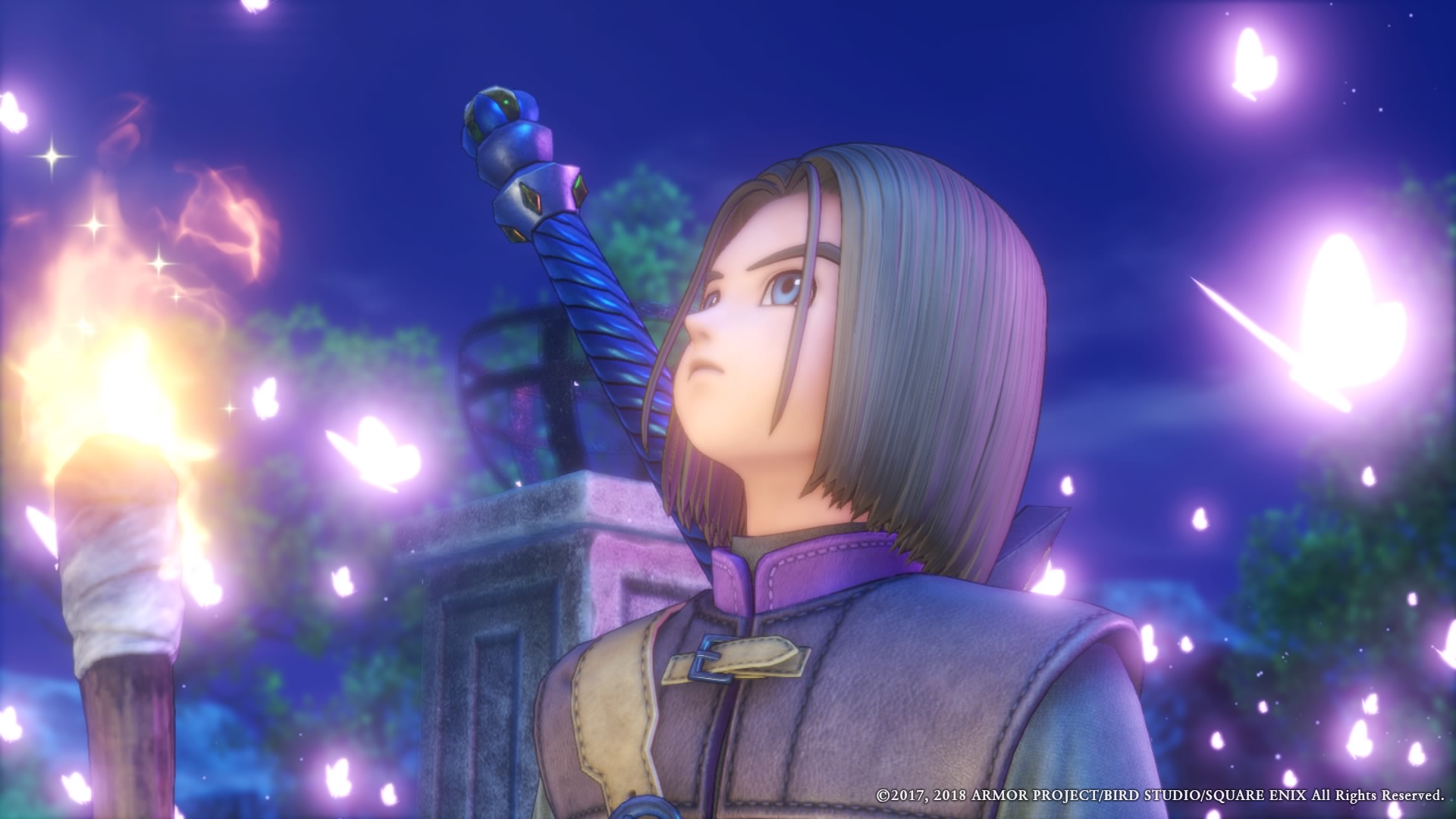
Dragon Quest 11: Echoes of an Elusive Age is the first Dragon Quest game to come to PC (Heroes spin-offs notwithstanding), and as Wes explained, it's a landmark release for Japanese games as a whole. It's also a great game, but it can take some getting used to. Compared to other JRPGs on PC, like the Tales, Legend of Heroes and Final Fantasy games, Dragon Quest games operate a little differently. So, to help you get into all the good stuff Dragon Quest 11 has to offer, I've rounded up some tips and tricks that I desperately wish I'd known going into the game.
You can find sparkly gathering spots on the map
This is a small tip which changed my freaking life, so we're going to hit it first. When you open the map and access the map menu, you can view the world map, read the maps for nearby areas, or check the current map for quest-giving NPCs. More importantly, you can pull up a map showing all of the sparkly gathering spots in the current area, and not only that, you can see what resource each spot gives. These gathering spots respawn over time, so if you're ever in need of a certain resource, you can revisit areas and use the sparkly map to see where to get that resource. I don't remember the game telling me about this feature, but it's a godsend.
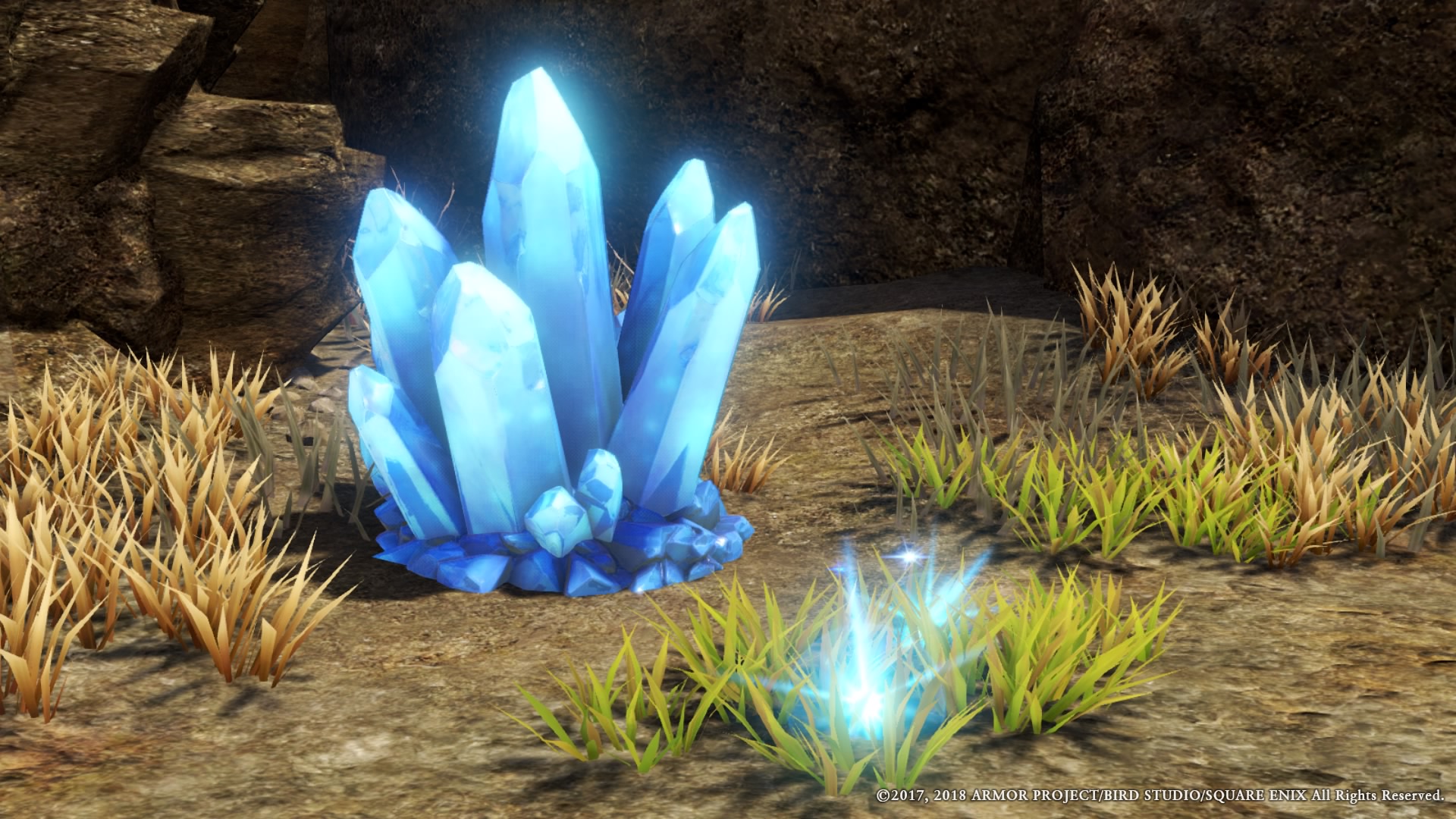
Autopilot is the future
If you want, you can manually control all four of your party members in every battle, but the fact of the matter is, I don't have that kind of time. Luckily the AI in Dragon Quest 11 is intelligent enough that you can leave most fights to them once you set up some decent tactics in the party menu. I've even caught the AI successfully comboing skills. Here's my usual party setup:
- Player character: Follow Orders (manual control)
- Melee characters: Fight Wisely (use a mix of normal attacks and abilities)
- Magic characters: Show No Mercy (spam spells like mana's going out of style)
- Support characters: Focus On Healing (heal characters missing a third or more of their health)
I haven't found much need for the "Don't Use MP" tactic, and "Mix It Up" is just a worse version of "Fight Wisely" in my experience. Against bosses or tougher enemies, I'll assume direct control and switch everyone to "Follow Orders."
The camera doesn't matter
Keep up to date with the most important stories and the best deals, as picked by the PC Gamer team.
Dragon Quest 11 is a turn-based JRPG, but it also gives you the option to roam freely around battle arenas during combat. This confounded me for my first hour or two: I'd try dodging attacks and sneaking up behind enemies but fights would play out exactly the same regardless. "What's the benefit of moving around?" I wondered. As it turns out, there isn't one. I'm just dumb. Moving during combat is a fluff feature and has no impact on anything. If you don't like it (it's easy to lose sight of characters moved behind enemies), you can easily enable a fixed "classic" camera in the settings.
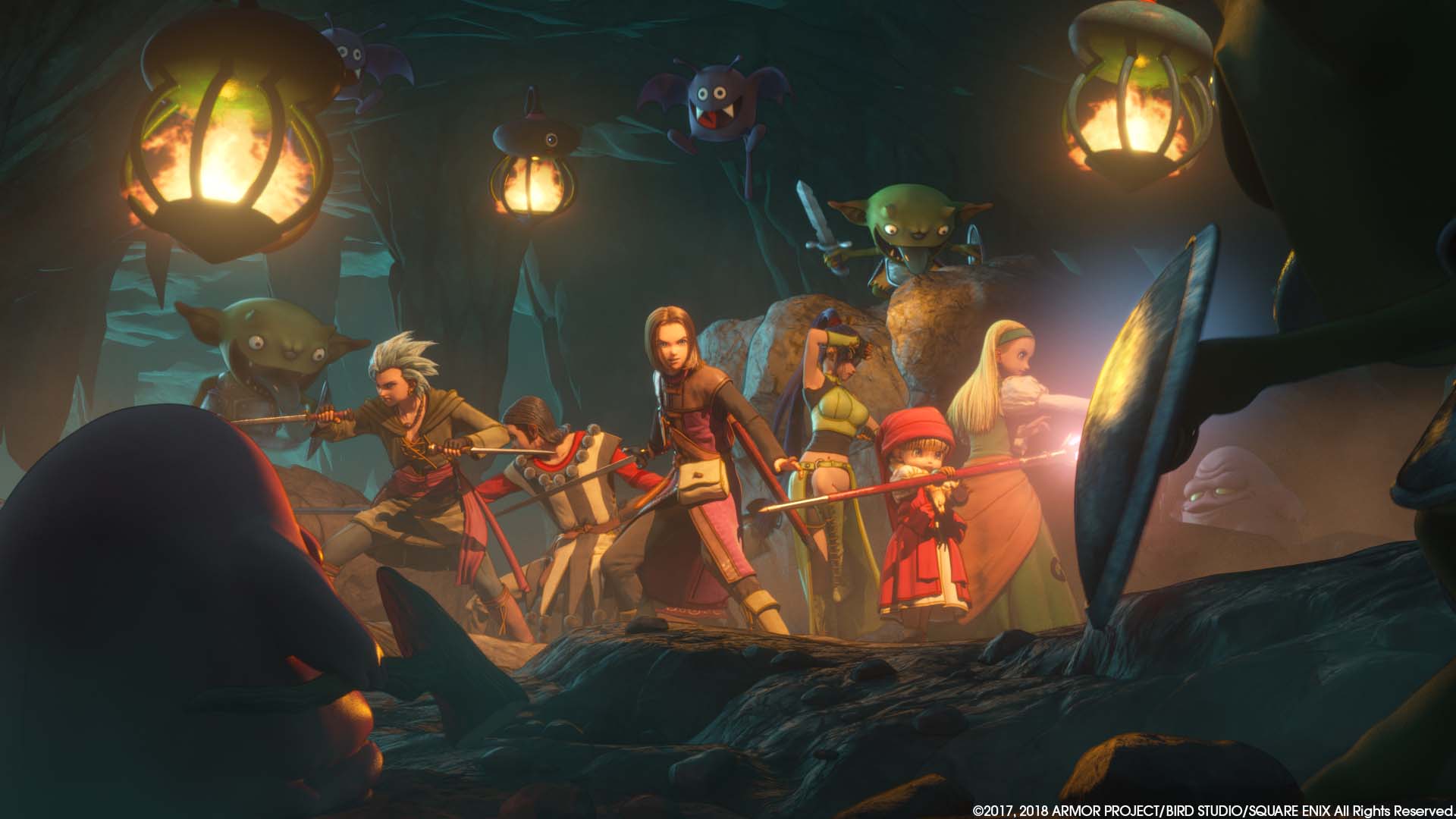
Draconian Quest settings are cool, but you can't activate them whenever
When you first start a new save file, you're given the option to activate a number of "Draconian Quest" settings while naming your character. These are optional modifiers which not only make the gamer harder, but can fundamentally change the way you play it. These settings are:
- No fleeing from battle: you cannot escape from battle if things go south
- No shopping: you can't buy items from shops, meaning you can only use what you find and craft
- No armor: you cannot equip any defensive items
- Reduced experience from easy fights: enemies below your level yield little or no experience
- All enemies are super strong: enemies are tougher
- Shypox: characters randomly fail to act in battle
If you want to use any Draconian settings, figure out which ones beforehand. Because once you start the game, you can't turn them on. If you start with a few Draconian settings enabled and decide you don't like them, you can turn them off at any point by talking to any of the priests scattered around the world. But once you turn them off, you can't turn them back on during that playthrough, so choose your settings wisely. Speaking of which...
You probably want tougher monsters
I've been playing Dragon Quest 11 without any Draconian settings enabled, and while I'm enjoying it immensely, I do wish it was a little harder. Bosses, in particular, aren't as threatening as I'd like. I don't really feel compelled to strategize against them since I can get away with most anything provided I don't try to play using my ears.
If you're not here for a nail-biting challenge, no worries, you're still in for a good experience. But if you like your JRPGs to have a little more bite, I recommend enabling the "All enemies are super strong" setting. I started a test file with this setting enabled and it added just the kick I was looking for. I'll definitely be using it in my second playthrough.
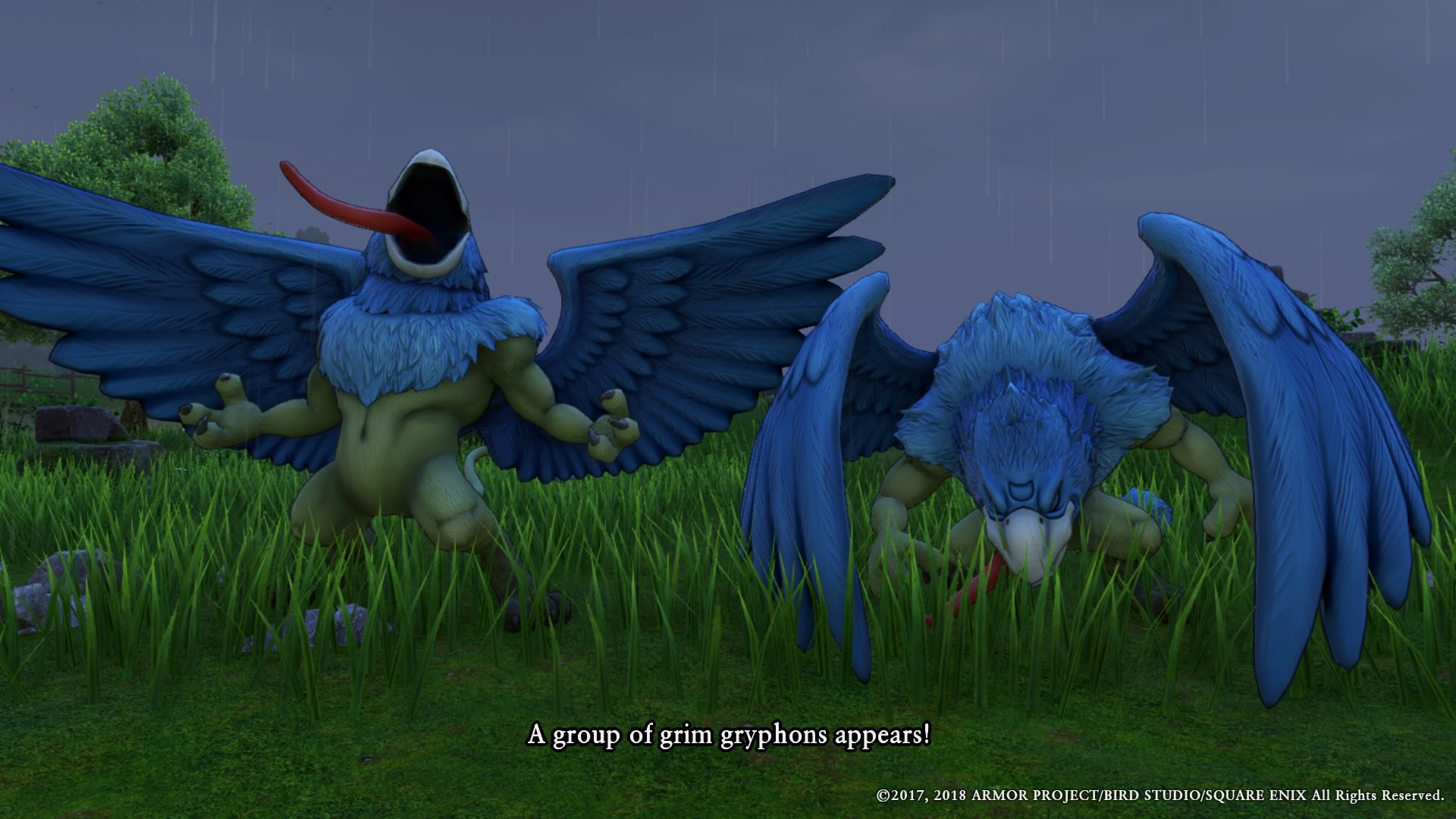
You can, and should, rework gear you buy
Dragon Quest 11 has a neat, user-friendly crafting system: in addition to outright crafting items, you can also rework items to improve their quality and stats by spending "Perfectionist Pearls," which you earn by crafting new items. So if you bungle your first attempt at making a powerful ring, you can take another swing at it provided you have the pearls. The jump between a grade-1 and a grade-3 item can be substantial, so it's worth reworking your favorites.
The trouble is, as your party expands and you unlock new recipes, it can be hard to craft the newest gear possible for everyone without grinding the heck out of sparkly spots. Which is why I've started checking armor and weapon shops before crafting anything, because it's often better to rework a store-bought item rather than craft it yourself. The former method only costs gold and pearls, letting you save your resources for powerful items that can only be crafted.
Let's say you want new wands for your both of your mages but you only have enough resources to craft one. Before anything, check and see if you can buy a good wand at the last shop you visited. You can craft the other wand yourself and use the pearls you get to rework the store-bought one.
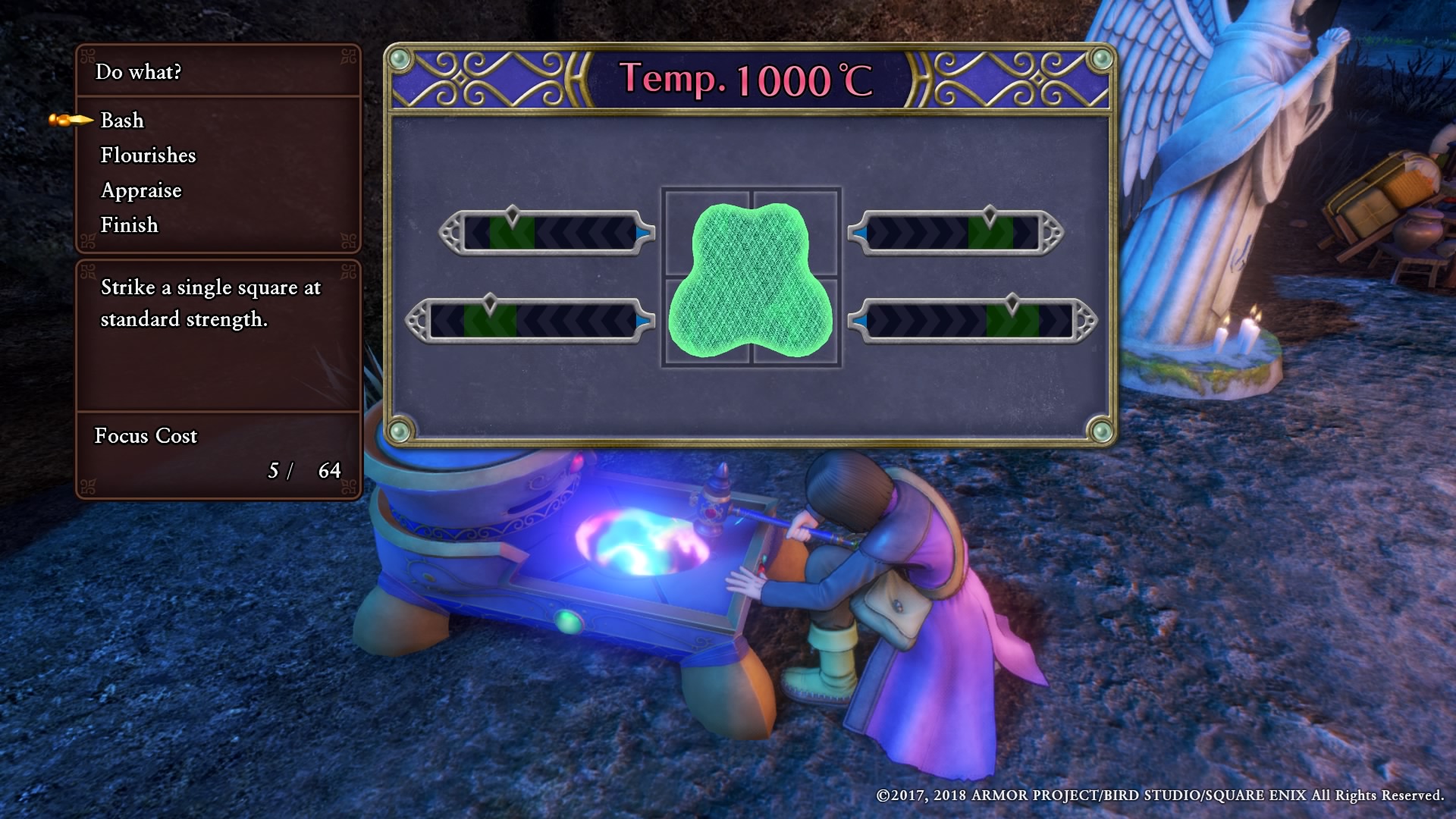
Character attributes are weird
Most of the stats, or attributes, in Dragon Quest 11 are pretty straightforward, but three of them really, really aren't: Deftness, Charm, and Agility. With a little testing, and with the help of a crack team of researchers and a few ancient texts, I have found out what they do.
- Deftness: This is basically your luck stat. It determines how often you strike first in battle, land critical hits, steal from enemies and successfully flee from battle.
- Charm: Sometimes enemies get distracted during battle and skip their turn, even if you don't hit them with an alluring spell. Having high Charm makes this happen more often, and it also makes it easier to inflict some status ailments.
- Agility: Broadly speaking, Agility affects your party's turn order. Characters with high Agility get to move before characters with low Agility. That being said, when it comes to turn order, Agility is more of a guideline than a rule. In my experience, characters sometime just do whatever they want regardless of Agility. But it's still worth upping this skill to improve your evasion and to preempt enemies.
Everyone levels at the same rate
I love JRPGs with big parties, but I hate juggling characters around or trading killing blows to distribute exp evenly so nobody falls behind on levels. Dragon Quest 11 doesn't have that problem since the characters in your party and the characters you have in reserve gain experience at the same rate. You can use whoever you want without feeling guilty, which is great because swapping characters mid-fight is easy and encouraged.
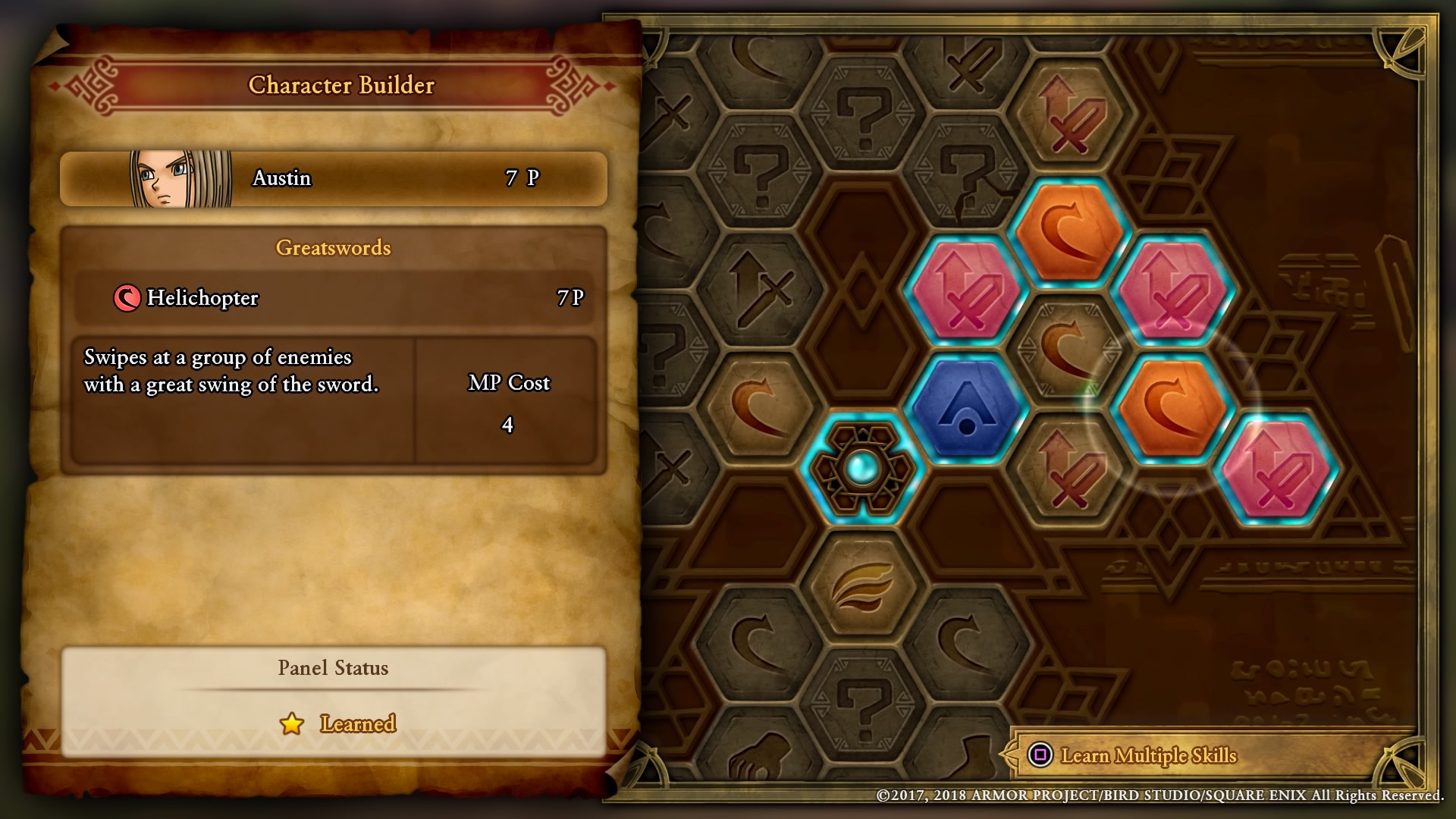
Yes, you can reset your skills
If you want to test out a new weapon type or just shake up your party, you can reallocate any character's skill points whenever you want. You won't have this option at the start of the game, but you'll unlock it fairly quickly. All you have to do is visit a priest, ask them for "Rectification," and pay 20 gold per reset skill point. So if you reset 30 points, it'll cost you 600 gold. Just know that you can't reset individual skills, only entire skill trees, so plan out your next build before resetting.
You don't want duplicate weapons in your party
There are several weapon types in Dragon Quest 11 and every party member can use at least two, so as a general rule it's inefficient to double-dip. Without wishing to spoil, let's say one character can use swords and knives, and another can use swords and whips. If you train both of them in swords, you're going to miss out on the unique skills of their other weapons, many of which excel at killing specific enemy types. There are seven party members in all, and I recommend aiming for seven different weapon types between them unless you have a very specific strategy in mind.
Here's my recommendation for an early setup. Start with swords on the main character and boomerangs on Erik. The early sword skills are cheap to use and the option to equip a shield will up your defense considerably. As for Erik, he learns a useful AoE skill at the start of the boomerang skill tree. Once you've built up some skill points and increased your maximum mana, swap the main character to greatswords to up your damage. Note that the main character is the only one who can use greatswords. Next, once Erik has 34 skill points, unlock the dual-wielding skill in the knife tree and swap him over to knives. Oh, and when you get Serena and Veronica, focus on their spell trees, not their weapons. They're great mages, but they're only average warriors.
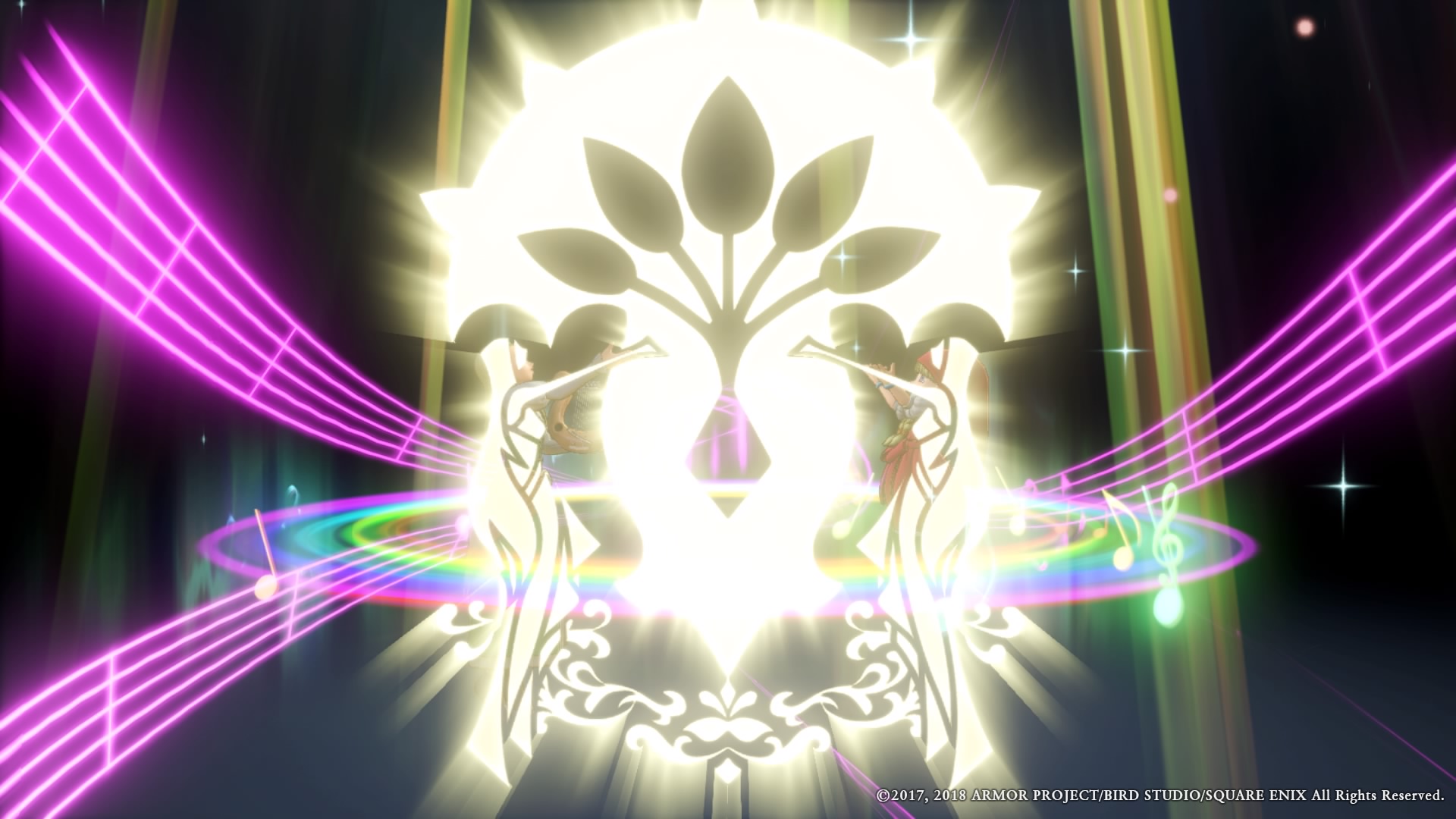
You can, and should, conserve Pep
There's no visible meter for "Pep," but it's one of the most valuable resources in the game. Characters passively build Pep as they defeat enemies and take damage, and once they have enough, they enter a Pepped up state which not only increases their stats, but also unlocks unique attacks and combos called Pep powers. Using the right Pep power at the right time can totally change the outcome of a fight, so it's important to make good use of your Pep.
For starters, try to use Pep powers right before your Pepped up state wears off. That way you get the maximum benefit from the stat boosts and you still get a powerful finisher. Pep usually lasts a good eight moves or so, and you can gauge how much Pep you have left by looking at your portrait: if the blue glow is blinking, your Pepped up state is about to run out.
If you want to save a specific Pep power for a tough fight, like Serena and Veronica's insanely powerful AoE heal, just keep those characters in reserve once they enter a Pepped up state. Pep doesn't deplete outside of combat, so you can essentially bottle Pep this way. Likewise, if you're coming up on the boss of a dungeon and don't want your Pepped up state to run out, it may be wise to avoid combat entirely.

Austin freelanced for PC Gamer, Eurogamer, IGN, Sports Illustrated, and more while finishing his journalism degree, and has been a full-time writer at PC Gamer's sister publication GamesRadar+ since 2019. They've yet to realize that his position as a staff writer is just a cover-up for his career-spanning Destiny column, and he's kept the ruse going with a focus on news, the occasional feature, and as much Genshin Impact as he can get away with.

